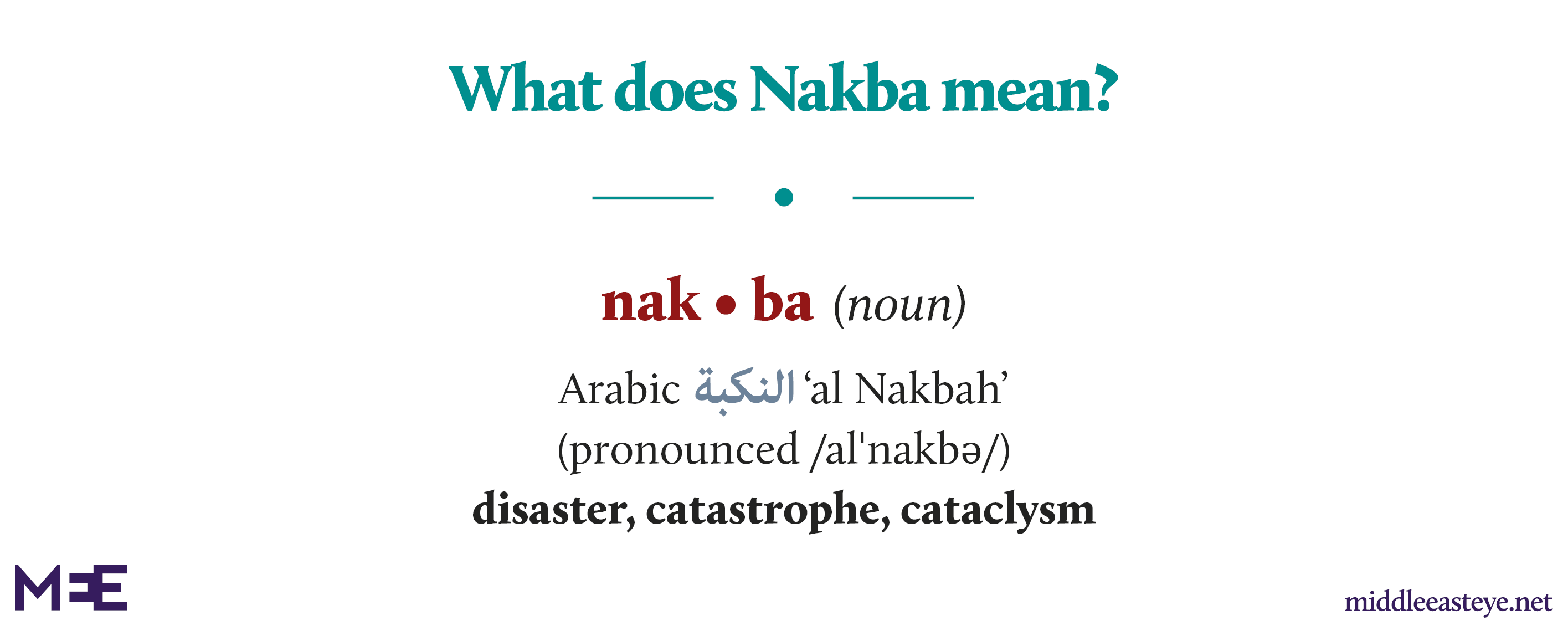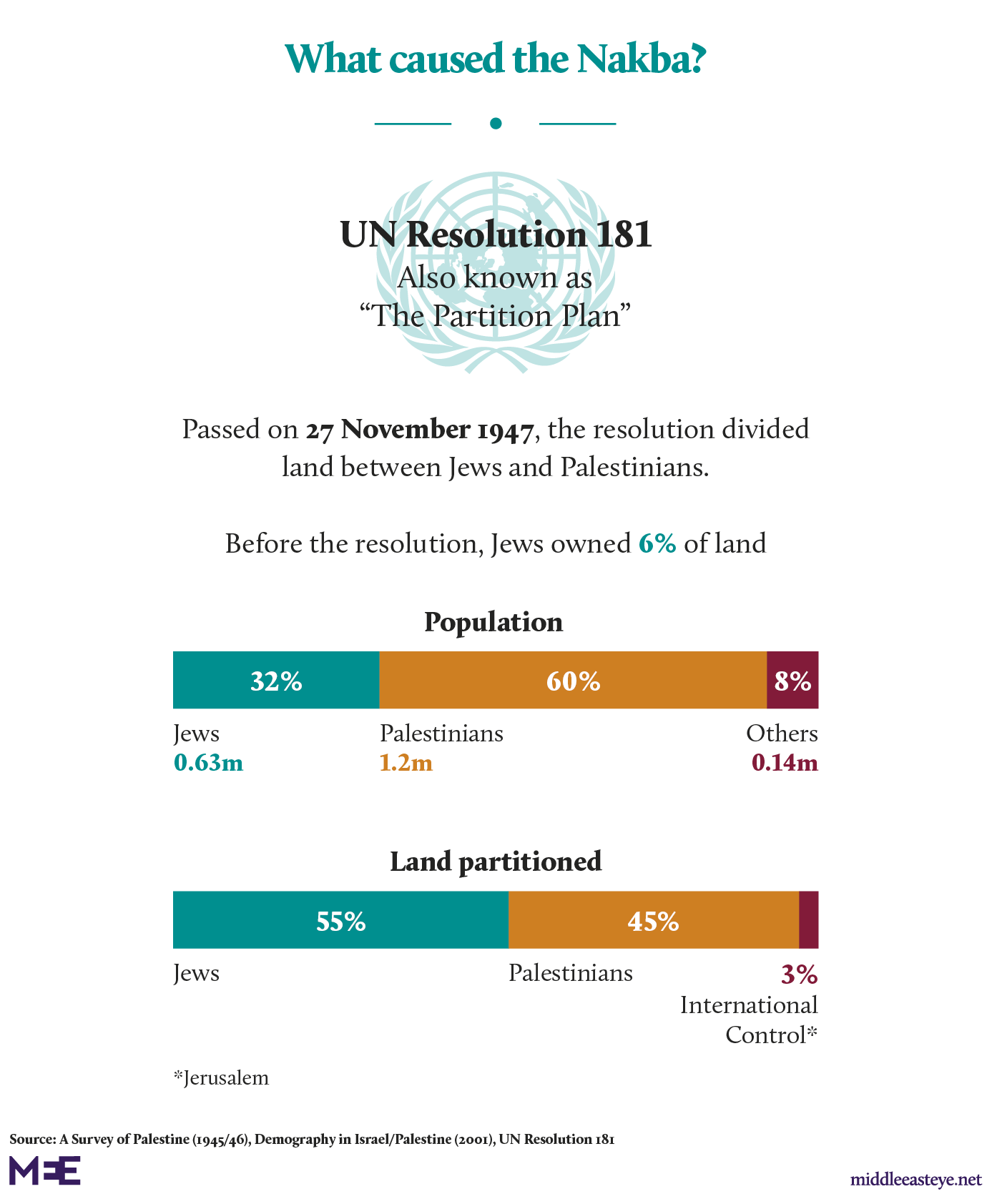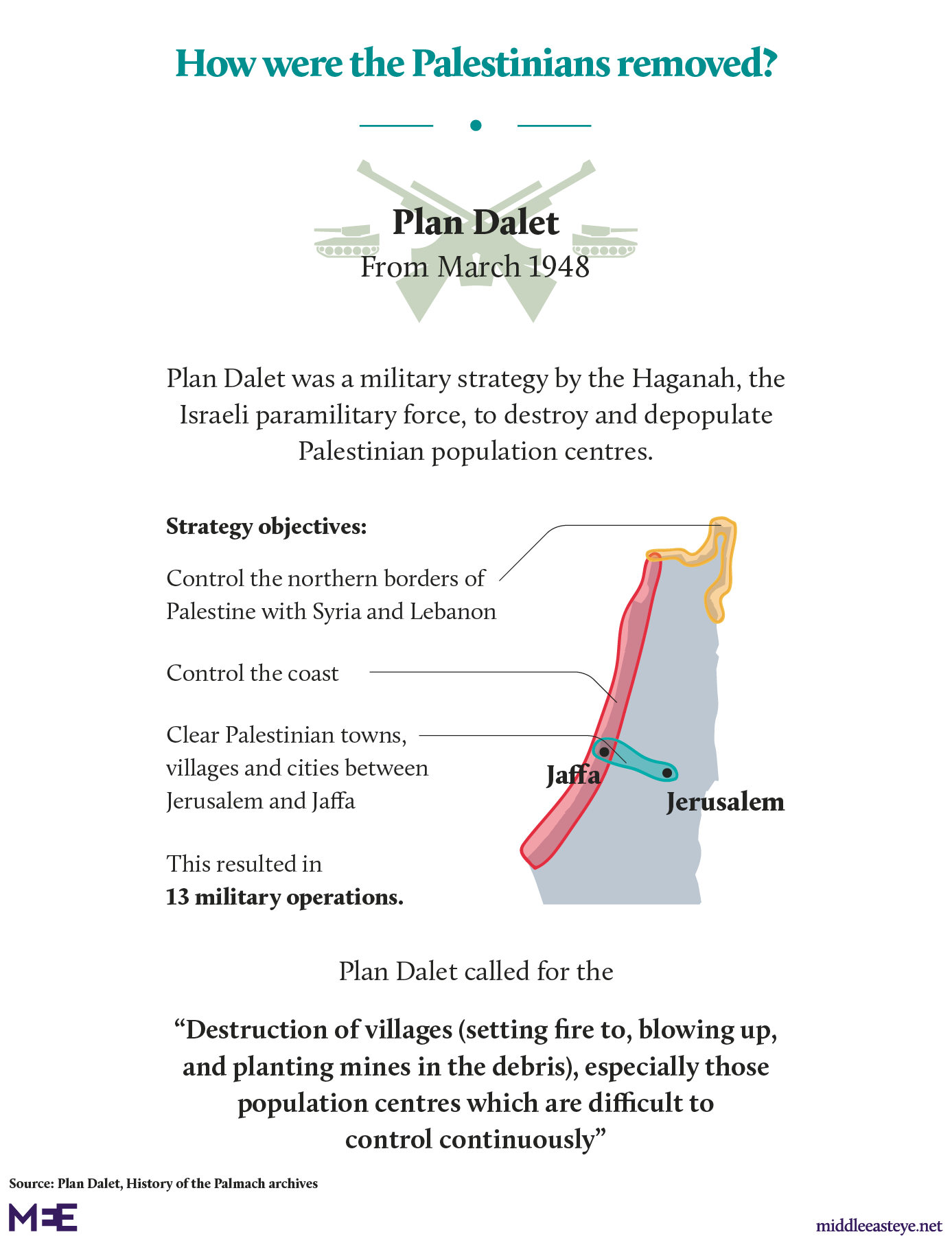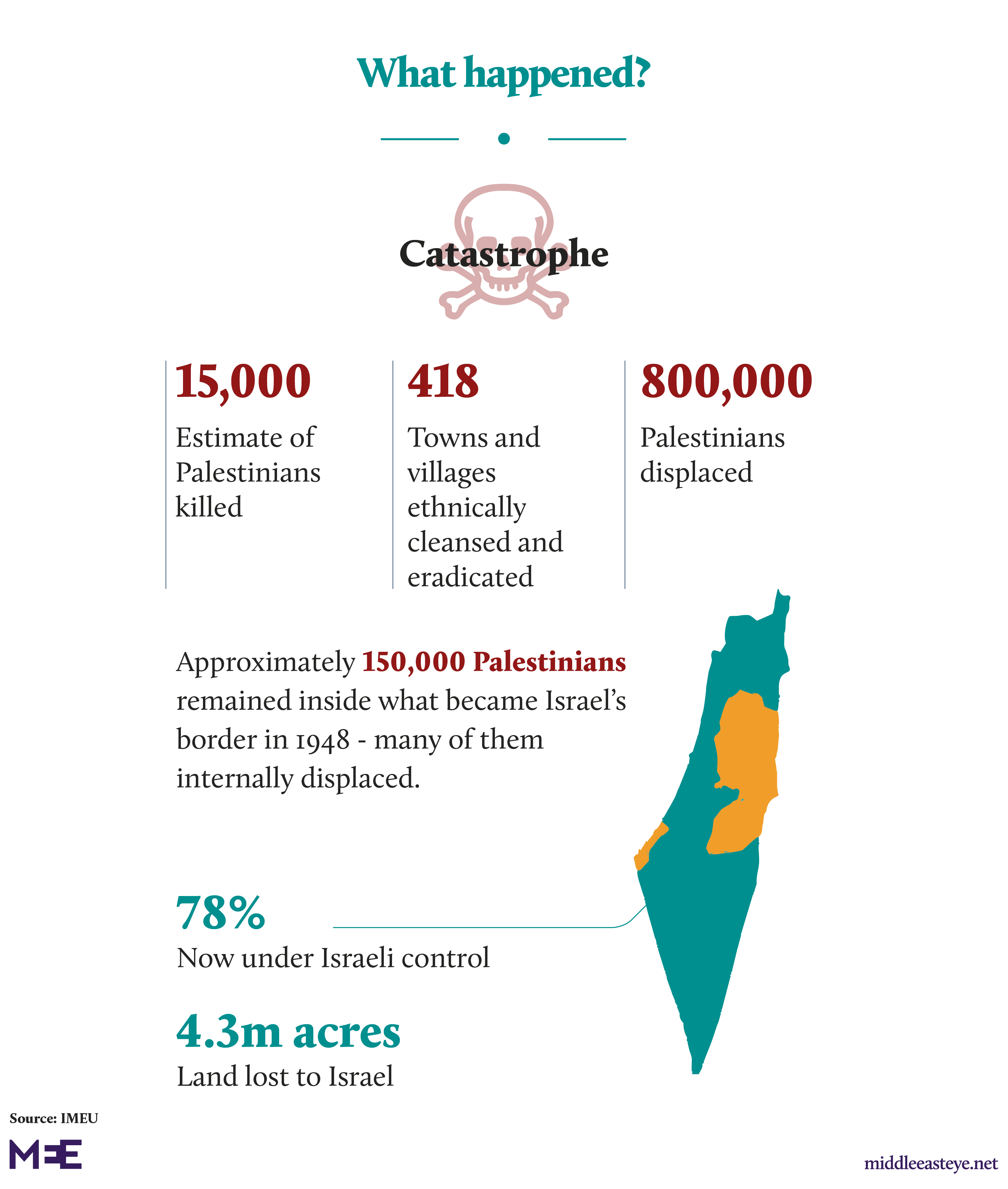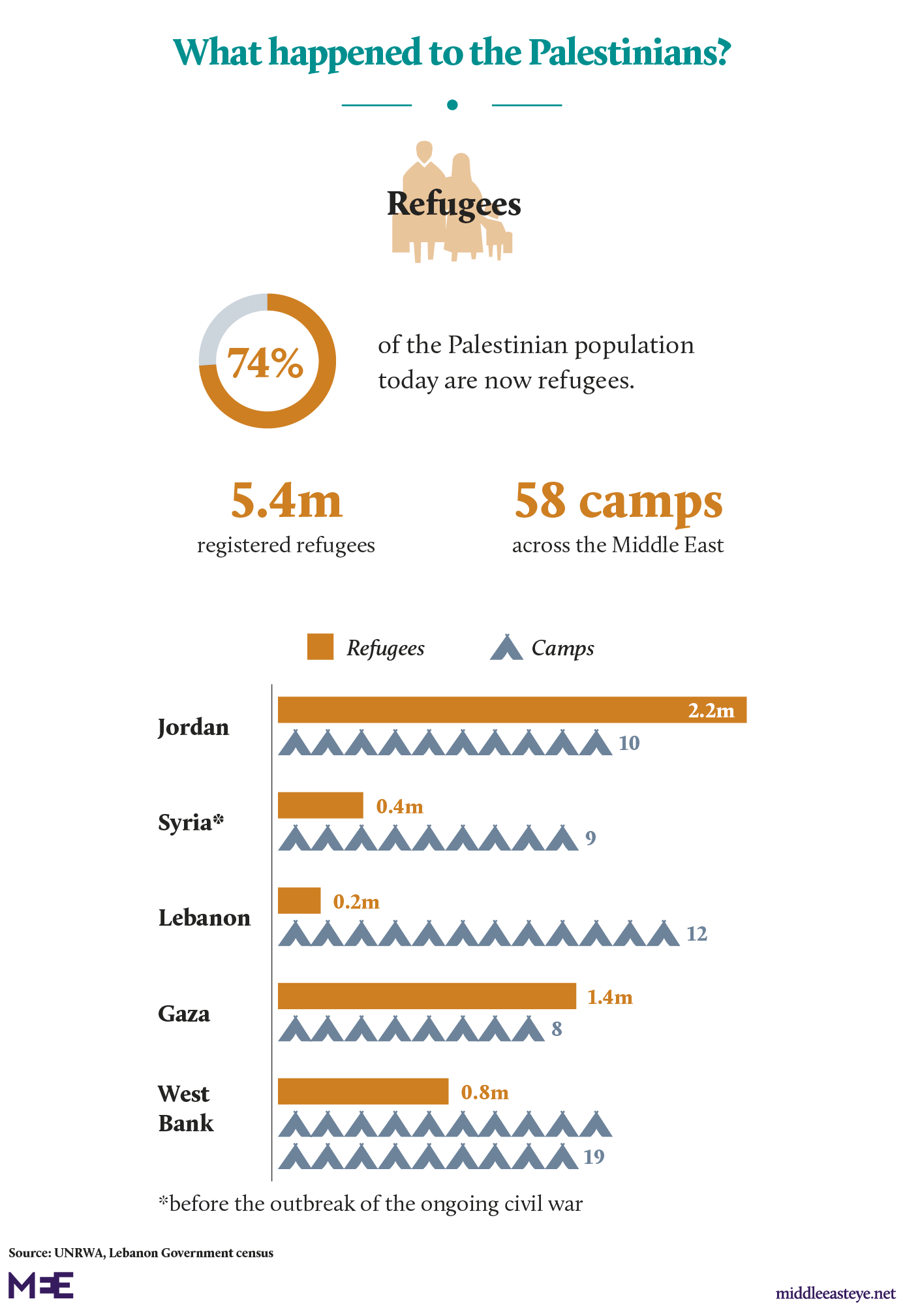What is the Nakba? Day of catastrophe for Palestinians, explained

The Nakba is one of the key events in modern Middle East history and one that has come to define the Israeli-Palestinian conflict ever since. Also known as "The Catastrophe", it began during late 1947 and 1948, as the new Israeli state came into existence.
The Nakba was the result of the partition of Mandatory Palestine in 1948 after World War Two ended, as the United Nations and world powers realigned the borders of the Middle East. But many argue that the plan did not take into account populations at the time.
Jewish paramilitary groups – some of whose members would go on to become key Israeli leaders, including Yitzhak Rabin, Ariel Sharon and Moshe Dayan - produced a plan to control the borders of the new territory.
Stay informed with MEE's newsletters
Sign up to get the latest alerts, insights and analysis, starting with Turkey Unpacked
In the weeks and months that followed, thousands of Palestinians were killed or driven from their homes and communities uprooted by Jewish paramilitary groups. Jews were also killed by Palestinian groups, if not in the same numbers.
Many of the Palestinians who fled or were driven from their homes never returned to historic Palestine, much of which is now the modern-day state of Israel. More than 70 years later, millions of their descendants live in dozens of refugee camps in Gaza, the West Bank and surrounding countries.
Nakba Day is now a key commemorative date in the Palestinian calendar. It is traditionally marked on 15 May, the date after Israeli independence was proclaimed in 1948. Some Palestinians also observe it on the day of Israeli independence celebrations, which itself changes from year to year due to variations in the Hebrew calendar.
This article is available in French on Middle East Eye French edition.
Middle East Eye delivers independent and unrivalled coverage and analysis of the Middle East, North Africa and beyond. To learn more about republishing this content and the associated fees, please fill out this form. More about MEE can be found here.


